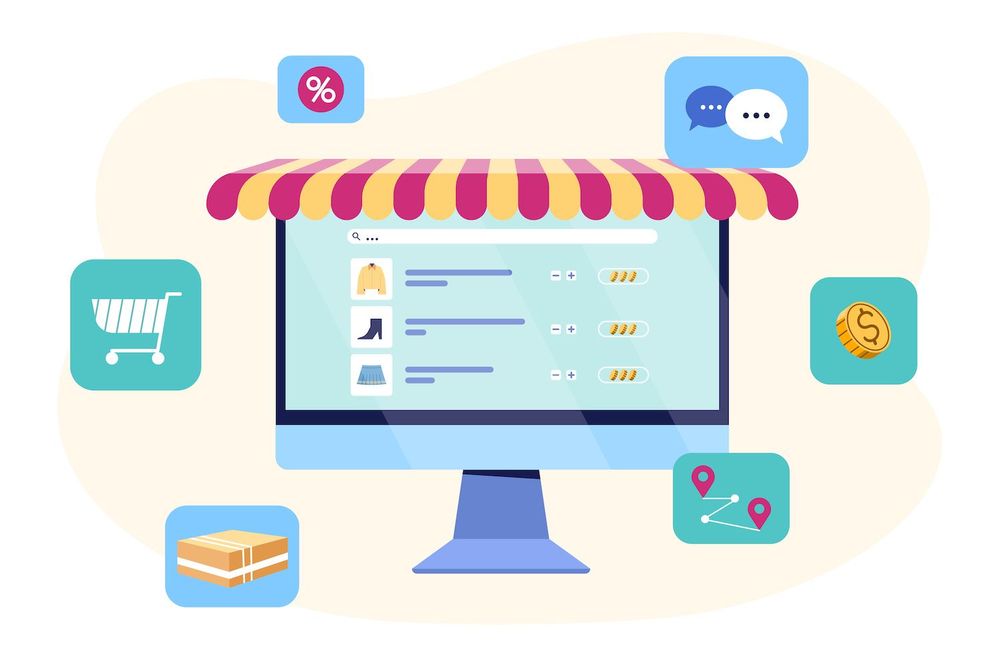The New EU Tax Regulations: What OSS and IOSS means for your store --
The 1st of July, 2021 New EU tax rules will take effect when it comes to the European Union (EU) Value-Added Tax (VAT) eCommerce package goes into effect. These changes represent a significant revision of the current tax laws, designed to simplify procedures and administrative requirements for merchants. They affect almost every B2C (B2C) company that operates trans-border eCommerce (often known as "distance sellers") within the EU.
EU retailers who cross the new EU-wide threshold of EUR10,000.00 must register across every one of the EU nations where they perform the taxable sales of business-to-consumer. They are however permitted to register through the new One Stop Shop (OSS) system in their own country. It allows online merchants to submit a similar VAT tax return to all of the EU and to pay one tax payment that is distributed in all the countries they make sales.
We've highlighted some crucial changes within the following paragraphs. Always, we suggest consulting with a tax professional to ensure your business is following regulations and the best practice.
Who will be affected? are most directly affected?
This EU VAT eCommerce program affects EU retailers that exceed the EU-wide threshold of EUR10,000.00 in addition to non-EU businesses import goods to the EU.
Merchants are able of using an One Stop Shop (OSS) processing system that allows them to file one VAT return to every country in the EU as well as to file a VAT return on their own for every EU nation they deliver their products to.
The tax rate for VAT differs between countries and ranges from 17% in Luxembourg up to 27% in Hungary ( see the full list of rates) Therefore, sellers must use VAT according to the VAT rate in the country of delivery for orders made within the EU. This applies to all deliveries made from fulfillment center within the EU to an address within the EU.
What's changing?
How it works now:
The present scheme for distance selling permits businesses to not register with VAT authorities within the country where they conduct B2C supply that is tax-deductible, in the event that the amount of these goods does not go over the limit of selling distance in a given year. Companies apply their tax rates local to the sales like if merchandise sold did not leave their country. When the threshold has been reached in the country of origin the business must register, file VAT returns, and charge the local tax rates applicable to registration B2C sales.
We will consider an German firm that is selling physical items to consumers in Romania. As long as the German company is able to reach the threshold for annual Romanian revenue in the amount of EUR25,305.00 The sales of their customers will be tax-deductible in Germany and will be tax-deductible in the standard German VAT percentage of 19 percent.
When the threshold has been crossed at EUR25,306.00 The Romanian sales are taxable within Romania which means that they have to sign up and assessed the Romanian normal VAT rate of 19 percentage.
What will happen when the changes are in effect:
In July, the deadlines to sell on the internet within certain countries will be abolished in the EU, and an additional threshold of EUR10,000.00 is set to be fixed. When it's reached, businesses will need to register in the countries they manufacture taxable B2C products. However, they may choose to sign up through the newly-created One Stop Shop system in the nation of their choice.
It will allow retailers selling eCommerce to file one VAT return throughout the EU and pay a single tax refund to the various countries in which they market their goods. This program will work as an extension of the existing Mini one-stop shop (MOSS) scheme that is available to digital service companies.
The German physical goods dealer that makes B2C tax-deductible supplies towards Romanian, Czech, and Polish private customers, will not need to be registered in those three countries. If they're able to reach the EU-wide threshold the company will be registered for OSS in Germany make one tax return and pay only one tax bill (instead instead of three). But, their local German B2C sales have to be reported on their tax return to reflect the area in which they live as well as a local VAT has to be paid.
What is the best option for sellers from outside within Europe? EU?
The exemption of VAT for the importation and use of items with a price not more than EUR22.00 is to be eliminated. This means that every item imported within the EU are taxed at VAT. Sellers outside the EU have a zero threshold for registration. That means that they must register with the very first B2C transaction.
To make VAT compliance easier for businesses outside the EU The Import one Stop Shop (IOSS)will be established. IOSS allows single returns in the event that businesses choose to charge VAT at the moment of sale for consignments below EUR150.00. If a business decides not to sign up for IOSS VAT, the tax will have to be paid by the purchaser on the day of importation to goods within the EU. Consignments valued above EUR150.00 are tax-free at the time of importing.
IOSS can also have an impact on customs clearance with the potential for processing imports faster. For some shipping companies which have VAT paid when the product was sold, sellers can provide the IOSS number within the Commercial Invoice information to the shipping company for customs declaration.
Merchants can find information that's valuable
For more information on updating your tax preferences, check out our guide.
If you're making changes to your tax setting It is strongly recommended to talk with your tax specialist to confirm that all rules are adhered to.
Article was posted on here
